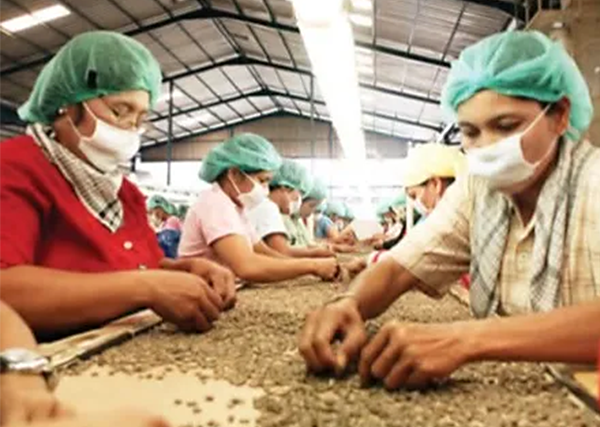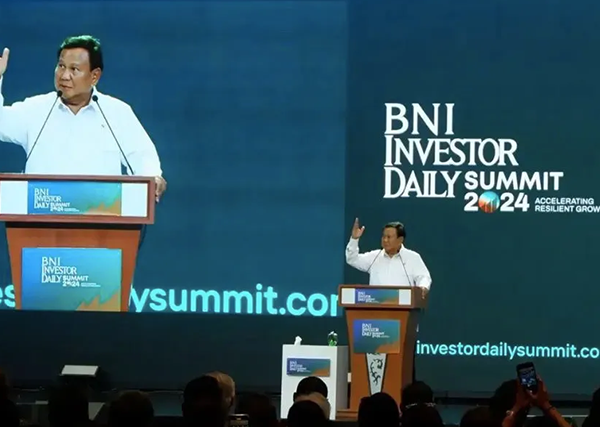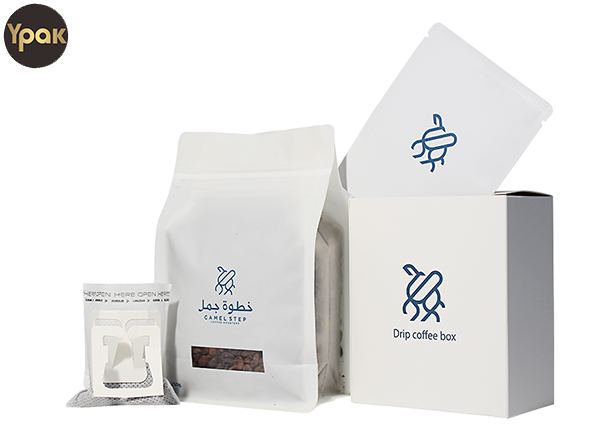Indonesia plans to ban the export of raw coffee beans
According to Indonesian media reports, during the BNI Investor Daily Summit held at the Jakarta Convention Center from October 8 to 9, 2024, President Joko Widodo proposed that the country is considering banning the export of unprocessed agricultural products such as coffee and cocoa.
It is reported that during the summit, the current Indonesian President Joko Widodo pointed out that the global economy is currently facing challenges such as climate change, economic slowdown and geopolitical tensions, but Indonesia is still performing well. In the second quarter of 2024, Indonesia's economic growth rate was 5.08%. In addition, the president predicts that in the next five years, Indonesia's per capita GDP will exceed US$7,000, and is expected to reach US$9,000 in ten years. Therefore, in order to achieve this, President Joko proposed two key strategies: downstream resource and digitalization.


It is understood that in January 2020, Indonesia officially implemented a ban on nickel industry exports through the downstream policy. It must be smelted or refined locally before it can be exported. It hopes to attract investors to directly invest in factories in Indonesia to process nickel ore. Although it was opposed by the European Union and many countries, after its implementation, the processing capacity of these mineral resources has increased significantly, and the export volume has surged from US$1.4-2 billion before the ban to US$34.8 billion today.
President Joko believes that the downstream policy is also applicable to other industries. Therefore, the Indonesian government is currently formulating plans to localize other industries similar to nickel ore processing, including unprocessed coffee beans, cocoa, pepper and patchouli, and to expand downstream to the agricultural, marine and food sectors.
President Joko also said that it is necessary to encourage labor-intensive domestic processing industries and extend resource nationalism to the agricultural, marine and food sectors in order to bring added value to coffee. If these plantations can be developed, revitalized and expanded, they can enter the downstream industry. Whether it is food, beverages or cosmetics, every effort must be made to prevent the export of unprocessed goods.


It is reported that there has been a precedent for banning the export of unprocessed coffee, and it was the famous Jamaican Blue Mountain Coffee. In 2009, the reputation of Jamaican Blue Mountain Coffee was already very high, and many fake "Blue Mountain flavored coffees" appeared in the international coffee market at that time. In order to ensure the purity and high quality of Blue Mountain Coffee, Jamaica introduced the "National Export Strategy" (NES) policy at that time. The Jamaican government strongly advocated that Blue Mountain Coffee be roasted at the place of origin. In addition, at that time, the roasted coffee beans were sold at US$39.7 per kilogram, while the green coffee beans were US$32.2 per kilogram. The roasted coffee beans were more expensive, which could increase the contribution of exports to GDP.
However, with the development of trade liberalization in recent years and the international coffee market's requirements for freshly roasted boutique coffee, Jamaica's management of commodity import and export licenses and quotas has begun to be gradually relaxed, and now the export of green coffee beans is also allowed.
At present, Indonesia is the fourth largest coffee exporter. According to statistics from the Indonesian government, the area of coffee plantations in Indonesia is 1.2 million hectares, while the area of cocoa production reaches 1.4 million hectares. The market expects Indonesia's total coffee production to reach 11.5 million bags, but Indonesia's domestic coffee consumption is large, and there are about 6.7 million bags of coffee available for export.
Although the current unprocessed coffee export policy is still in the formulation stage, once the policy is implemented, it will lead to a reduction in the global coffee market supply, which will in turn lead to price increases. Indonesia is the world's fourth largest coffee producer, and its coffee export ban will directly affect the supply of the global coffee market. In addition, coffee producing countries such as Brazil and Vietnam have reported a reduction in production, and coffee prices remain high. If Indonesia's coffee export ban is imposed, coffee prices will rise sharply.


In the most recent Indonesian coffee season, the total coffee bean production in Indonesia in the 2024/25 season is expected to be 10.9 million bags, of which about 4.8 million bags are consumed domestically, and more than half of the coffee beans will be used for export. If Indonesia promotes deep processing of coffee beans, it can keep the added value of deep processing in its own country. However, on the one hand, the overseas market accounts for a large proportion of coffee beans, and on the other hand, the coffee bean market is increasingly inclined to sell freshly roasted coffee beans in consumer countries, which will make the policy's enforceability very questionable. Further news is needed on the progress of Indonesia's policy move.
As a major exporter of coffee beans, Indonesia's policy has a strong impact on coffee roasters around the world. The reduction of raw materials and the increase in raw material prices mean that merchants need to increase their selling prices accordingly. Whether consumers will pay for the price is still unknown. In addition to the raw material response policy, roasters should also update and upgrade their packaging. Market research shows that 90% of consumers will pay for more exquisite and high-quality packaging, and finding a reliable packaging manufacturer is also a problem.
We are a manufacturer specializing in producing the coffee packaging bags for over 20 years. We have become one of the largest coffee bag manufacturers in China.
We use the best quality WIPF valves from Swiss to keep your coffee fresh.
We have developed the eco-friendly bags, such as the compostable bags and recyclable bags,and the latest introduced PCR materials.
They are the best options of replacing the conventional plastic bags.
Our drip coffee filter is made of Japanese materials, which is the best filter material on the market.
Attached our catalogue, please send us the bag type, material, size and quantity you need. So we can quote you.
Post time: Oct-18-2024







